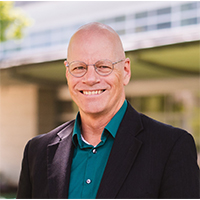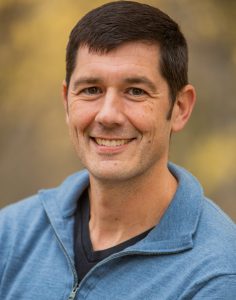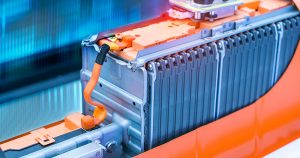 Kevin D. Moeller
Kevin D. Moeller
Professor of Chemistry
Washington University in St. Louis, U.S.
Date: May 25, 2022
Time: 1000h ET
Sponsors: Hiden Analytical (more…)
 Kevin D. Moeller
Kevin D. Moeller
Professor of Chemistry
Washington University in St. Louis, U.S.
Date: May 25, 2022
Time: 1000h ET
Sponsors: Hiden Analytical (more…)
 If you missed Dr. Mark Willey’s webinar, the live webinar was recorded and has been uploaded to the official ECS YouTube channel for open-access viewing. View it now!
If you missed Dr. Mark Willey’s webinar, the live webinar was recorded and has been uploaded to the official ECS YouTube channel for open-access viewing. View it now!
The Society and ECS Pacific Northwest Section hosted the webinar, “The U.S. Lithium Battery Market and the Challenge of Supporting it with Domestic Suppliers,” on May 3, 2022. This interesting, forward-thinking presentation and lively Q&A session covered: (more…)
 Professor Manthiram answered audience questions during a live Q&A session following his April 20 webinar, “Electrification and Decarbonization of Chemical Synthesis.” He kindly provided written answers to questions not covered during the broadcast (below). The webinar is available to view on the ECS YouTube channel.
Professor Manthiram answered audience questions during a live Q&A session following his April 20 webinar, “Electrification and Decarbonization of Chemical Synthesis.” He kindly provided written answers to questions not covered during the broadcast (below). The webinar is available to view on the ECS YouTube channel.
 Mark J. Willey
Mark J. Willey
Battery Materials and Systems
Pacific Northwest National Laboratory (PNNL)
University of Washington, Seattle
Date: May 3, 2022
Time: 1000–1100h PT
Price: There is no cost to register for this event, but registration is required.
Registration: You must preregister through ECS My Account. Don’t have one? It’s easy to create—visit Create an Account now.
The webinar is open to the public; ECS membership is not required. (more…)
 The grant writing and review process can be daunting and difficult for young investigators to navigate. Learn tips and best practices from experts on how to successfully craft a scientific proposal for federal grants, industry partnerships, and non-profit support. A live question and answer session with the audience follows short presentations by each panelist.
The grant writing and review process can be daunting and difficult for young investigators to navigate. Learn tips and best practices from experts on how to successfully craft a scientific proposal for federal grants, industry partnerships, and non-profit support. A live question and answer session with the audience follows short presentations by each panelist.
Date: Tuesday, April 12, 2022
Time: 1400h ET
Cost: Free and open to the public
Format: Zoom (more…)
Karthish Manthiram
Professor of Chemistry and Chemical Engineering
California Institute of Technology, U.S.
Date: April 20, 2022
Time: 1000h ET
Sponsors: Hiden Analytical, Royal Society of Chemistry, Cell Press
 The ECS Detroit Section invites you to join Dr. Chen Liao for her webinar on Wednesday, April 6, 2022.
The ECS Detroit Section invites you to join Dr. Chen Liao for her webinar on Wednesday, April 6, 2022.
Date: Wednesday, April 6, 2022
Time: 1900h EDT
Cost: Free (more…)
 Note these April and June deadlines
Note these April and June deadlinesApply now or nominate someone you know for an ECS award or travel grant. Award recipients join an elite group of past Society, division, and section winners. Click on the links below for further details.
ECS uses an electronic portal for all applications. Here are some tips for the best results. Questions or concerns? Send a message as we are here to help. (more…)
Ahmet Kusoglu
Chemist Staff Scientist/Engineer
Lawrence Berkeley National Laboratory, U.S.
Date: March 23, 2022
Time: 1300h ET
Sponsors: Hiden Analytical, Element Six, TA Instruments – Waters
 Join The Electrochemical Society (ECS) and IOP Publishing for the “Diversity in Publishing Science” webinar, a deep dive into empowering global researchers and accelerating scientific discovery by making diversity, equity, and inclusion (DEI) central to publishing science. Jessica MacDonald moderates the discussion with panelists Dr. Christina Bock; Kim Eggleton; and Adrian T. Plummer MPA, PMP.
Join The Electrochemical Society (ECS) and IOP Publishing for the “Diversity in Publishing Science” webinar, a deep dive into empowering global researchers and accelerating scientific discovery by making diversity, equity, and inclusion (DEI) central to publishing science. Jessica MacDonald moderates the discussion with panelists Dr. Christina Bock; Kim Eggleton; and Adrian T. Plummer MPA, PMP.
Date: March 30, 2022
Time: 1000-1100h ET
Cost: Free to register!
Format: Zoom Webinar
Pre-registration: Required through ECS My Account
Don’t have one? It’s easy to create—visit Create an Account now. (more…)